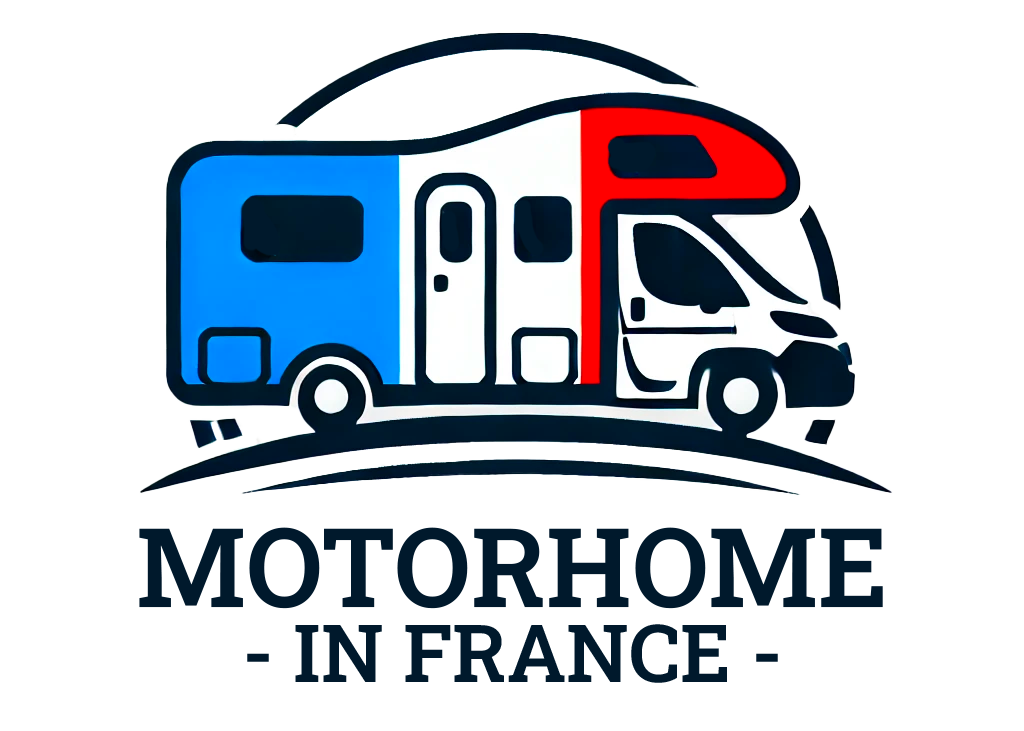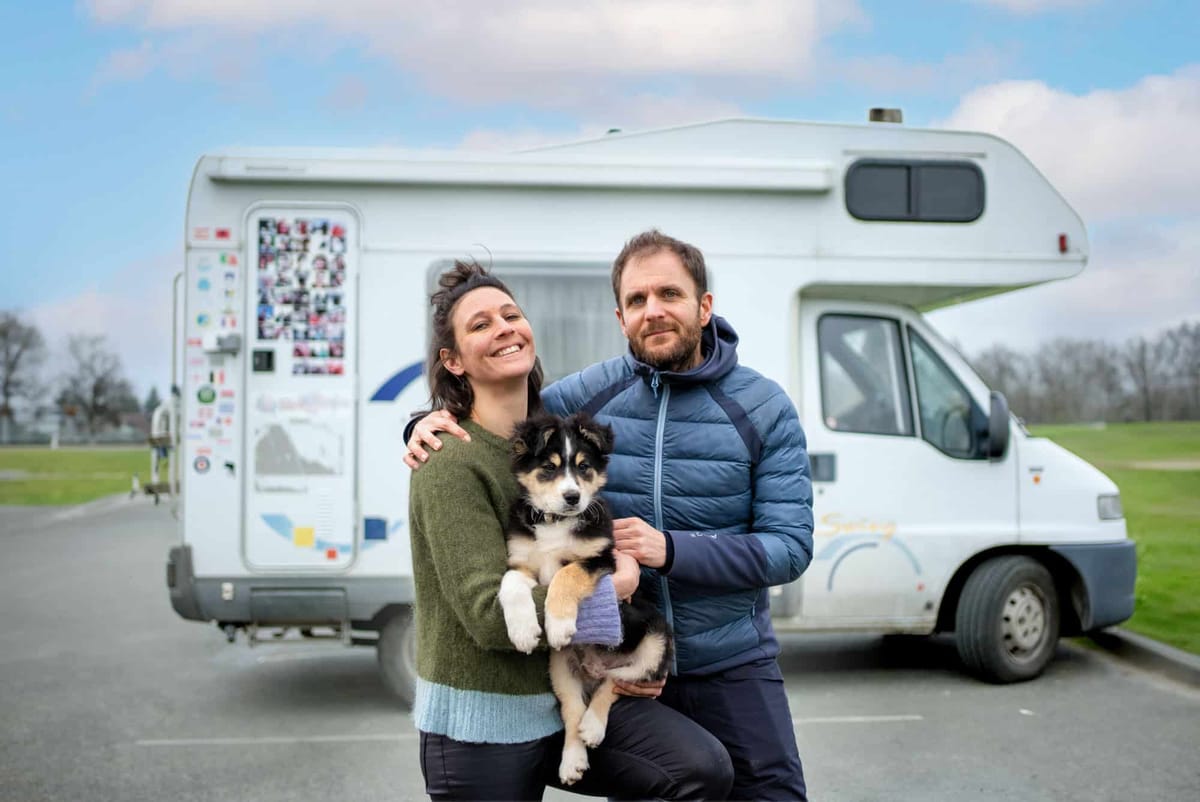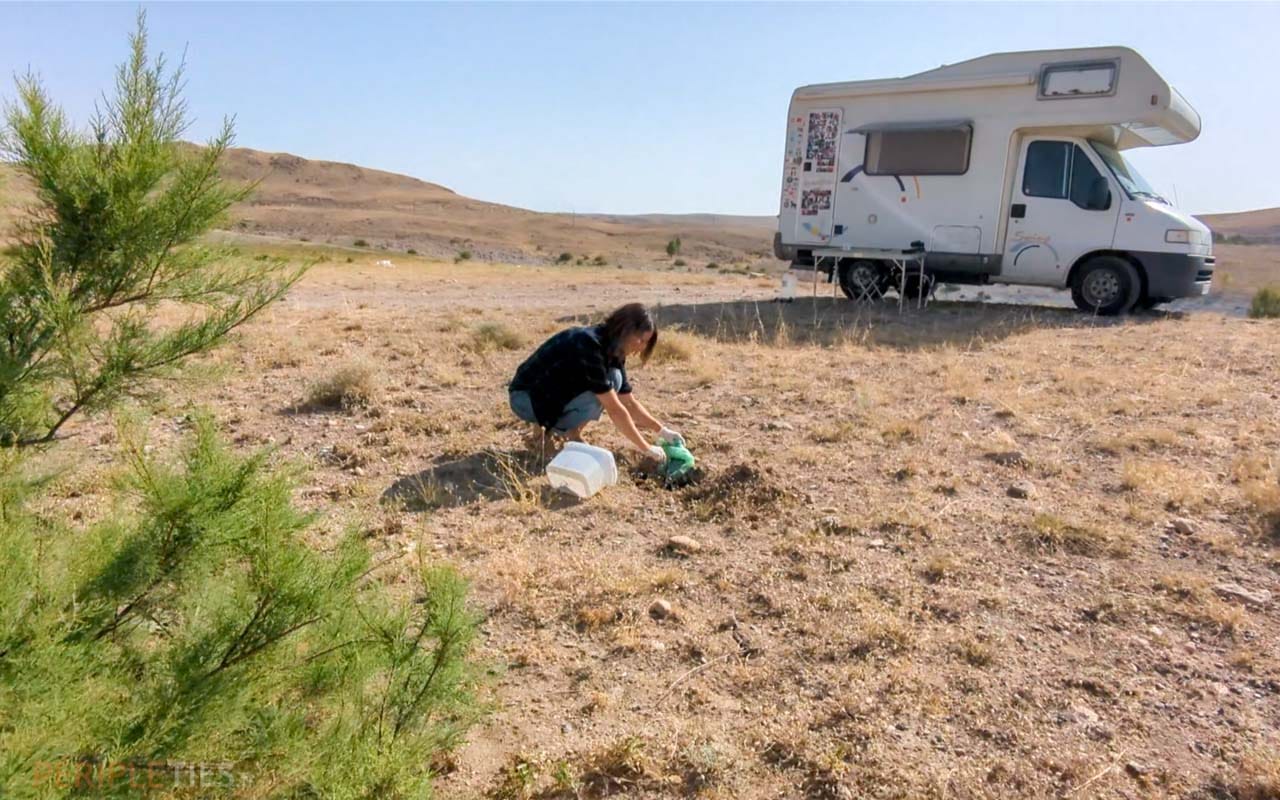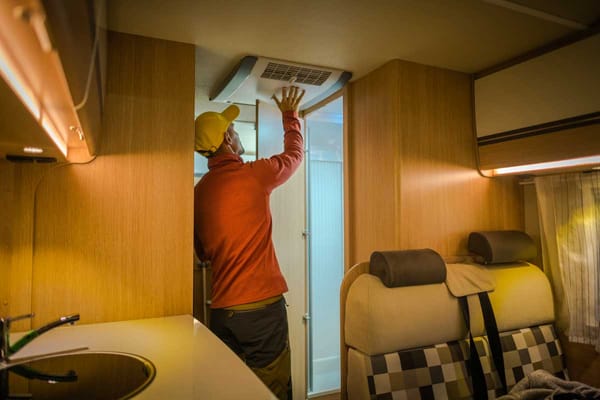After years of travelling with a chemical cassette toilet, we've installed a partitioned toilet in our motorhome.
So we're going to share our experience with you... and tell you about the advantages and disadvantages of eco-toilets in the form of (frequently asked) questions/answers.
1) Should ‘dry toilets’ be preferred to ‘chemical toilets’ in a van or motor home?
Should you install dry toilets in your van or motorhome? The question is hotly debated. 😊
The pros: some will tell you that dry toilets are more hygienic and there's no smell (it doesn't smell) and it's also more environmentally friendly (no water, compost toilets and no chemicals). The dry toilet also offers greater flexibility and independence when travelling.
The cons: for others, the dry toilet is an unthinkable step backwards in time to 2022, it's dirty and can lead to illegal dumping.
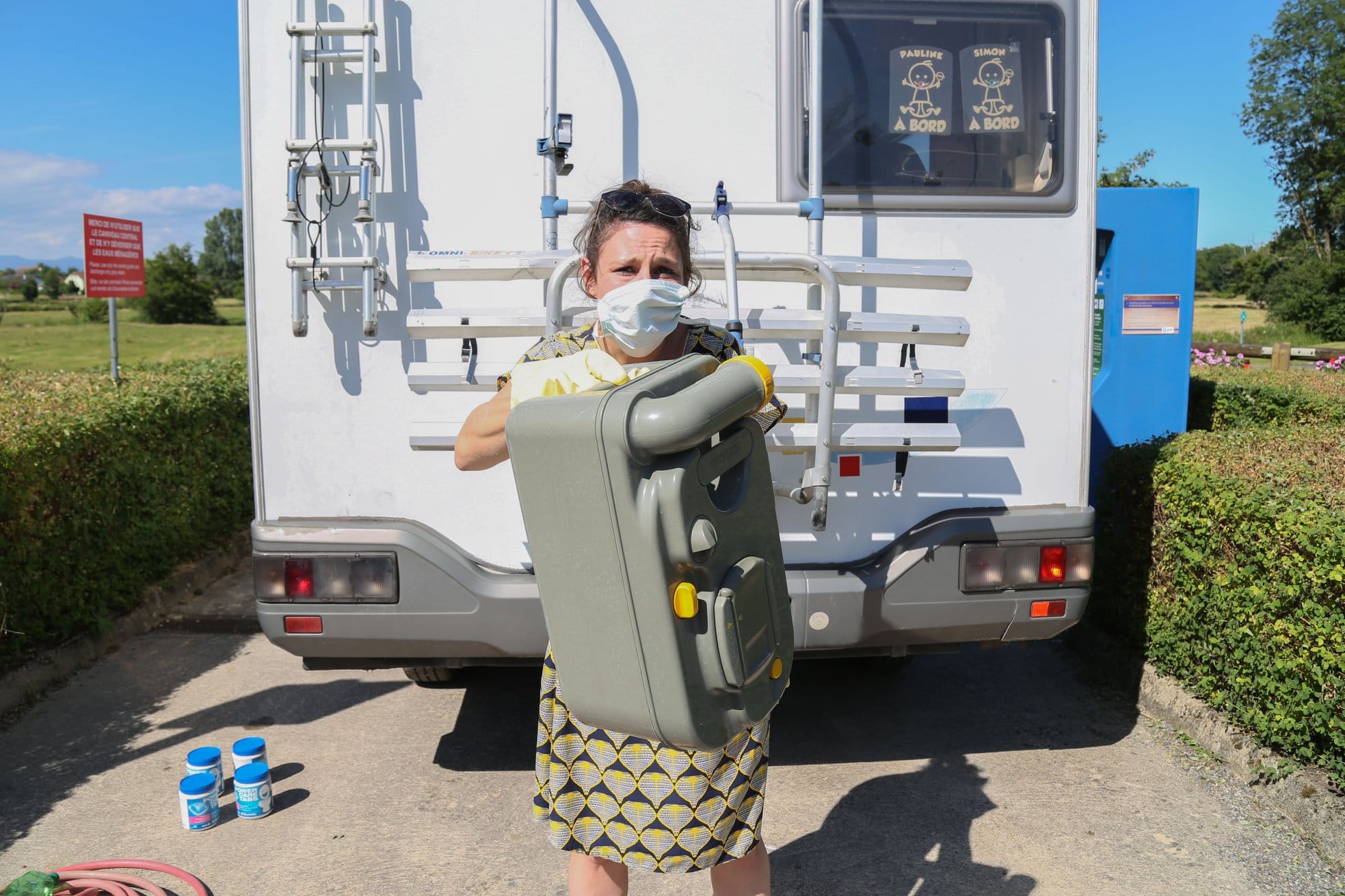
2) What are the advantages of dry toilets in a van or motorhome?
At the end of the day, we have to admit that every opinion can be defended!
After years of using the famous Thetford chemical cassette toilets (Dometic for others) that most motorhomes and vans are still equipped with, we said goodbye to chemical toilets and chose to switch to dry toilets.
Although we opted for the wooden partition toilet from the German brand Trelino, we had a lot of questions to ask ourselves beforehand.
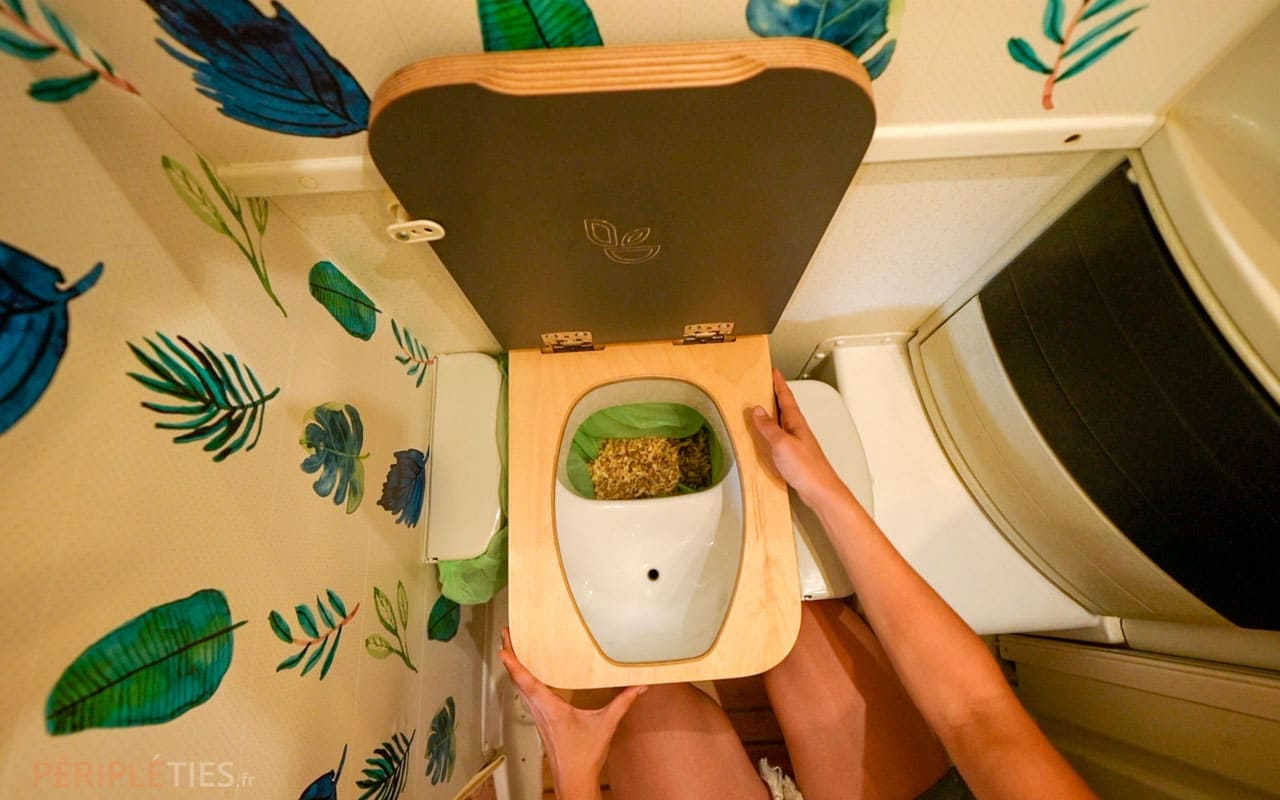
3) What is a dry toilet?
As opposed to conventional (‘liquid’ or ‘chemical’) toilets, dry toilets do not use water.
These waterless toilets simply use a litter (sawdust or wood shavings, straw, ash, dead leaves, or even earth) with which each user covers their faeces and urine.
The plant matter prevents the fermentation of organic matter and enables a composting process that can even be used as fertiliser.
How are conventional motorhome toilets emptied?
With a conventional cassette toilet system, you need to go to a service provider to empty your motorhome. The great advantage of dry toilets is that you are more autonomous, and you can bury the contents of the bucket in nature, provided you meet a few conditions. We'll talk about these below.
Chemical toilet products from Thetford, Dometic...
Composting toilets do not require the addition of chemicals, as is the case with cassette toilets and their various products (sachets, bottles, etc.) in all colours (blue, green, pink, orange, etc.).
They are marketed by brands that have a monopoly on the chemical toilet market (Aqua Kem Blue, Dometic Power Care, etc.).
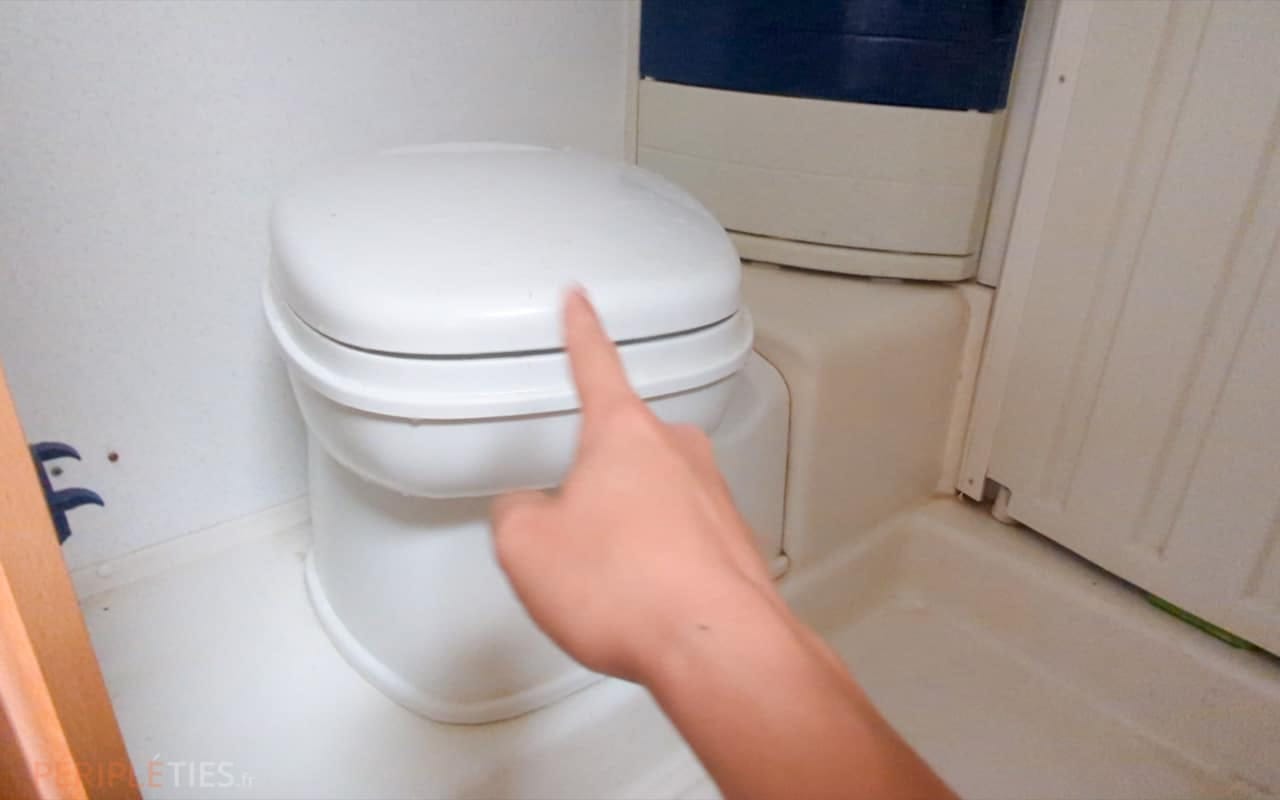
4) What makes and models of dry toilets are there?
There are a number of companies that manufacture dry toilets for camping and motorhomes, vans and camper vans.
Portable camping toilets:
- Kampa and its portable camping toilet
- Camp4 and its PRO PLUS portable toilet
- Outwell and its 10 L portable toilet
Foldable camping toilets:
- Yachticon foldable toilet kit
- Camping Wadeo folding toilet
- Bivvy Loo Portable Toilet
Urine-diverting toilets (German) :
- the Trelino® Evo toilet in recyclable plastic
- the Trelino® Origin toilet (recyclable polyethylene (PE) housing and wooden lid)
- the Trelino® Timber toilet (made of multiplex birch wood with an HPL finish)
- Boxio separating toilet
- Trobolo Wanda Go
Wooden dry toilets made in France:
- Mes Toilettes Sèches (handmade)
- Lécopot (home-made)
Personally, we opted for the German brand Trelino.
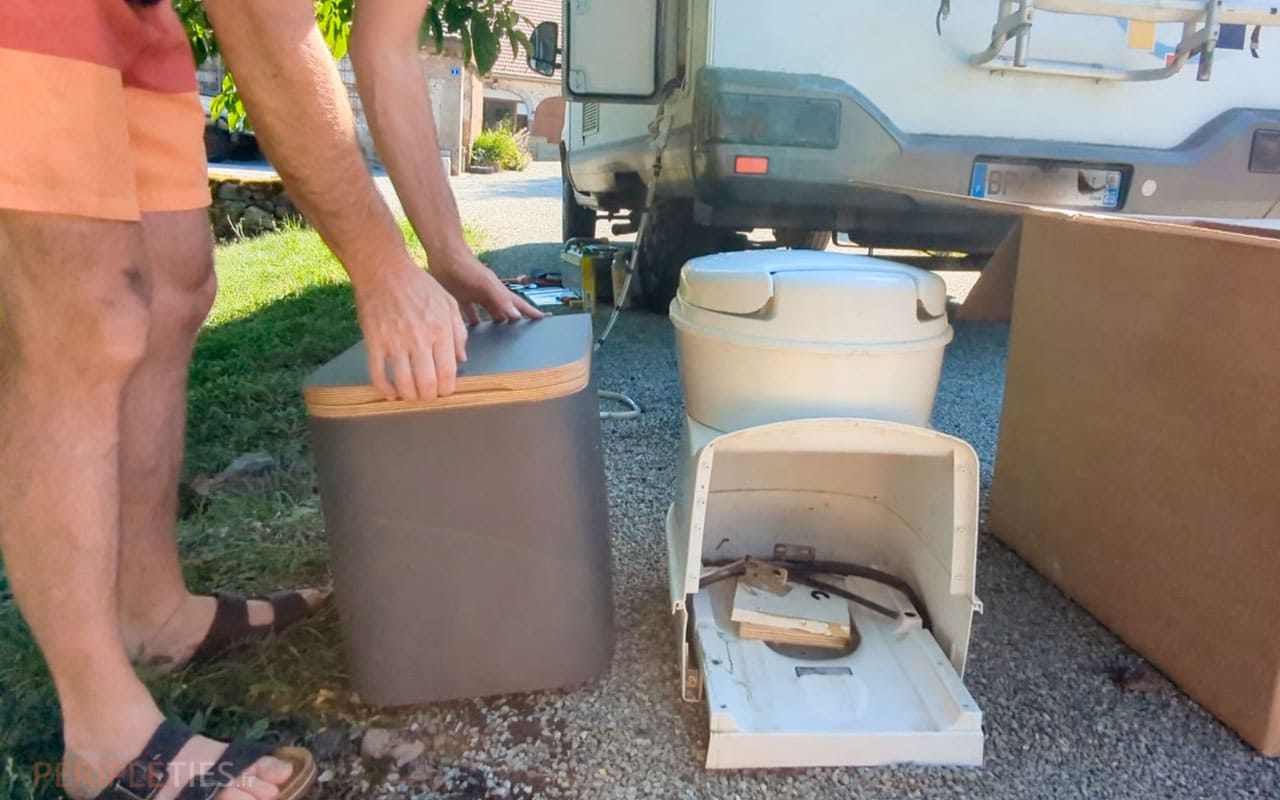
5) Is installing a dry toilet in your camper van or van really more environmentally friendly?
Let's take a moment to think... Who can objectively admit that in the 21st century, when water is scarce, we still poo in drinking water? (Pardon the expression...).
At home, conventional toilets evacuate wastewater to treatment plants. In motorhomes, the service areas collect the black water (toilet water) and grey water (dishes, showers) and send it to a water purification circuit.
The cost of water treatment
That's a good thing, of course! However, water treatment operations have a significant economic and environmental cost.
Because they do not require the use of drinking water or chemicals, and allow organic waste to be recycled, dry toilets are undeniably more environmentally friendly than conventional toilets.
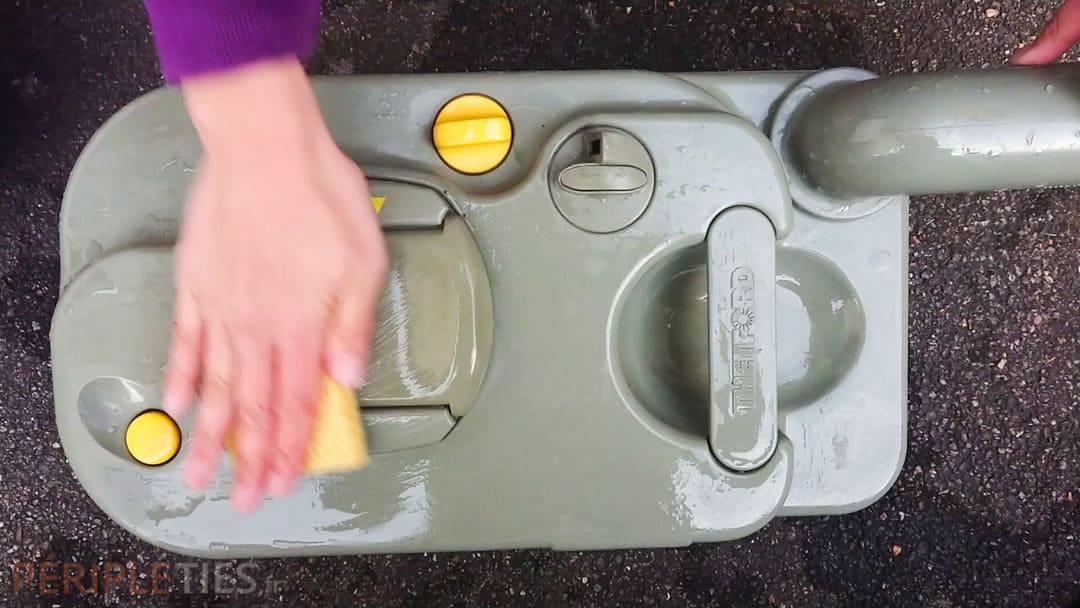
6) What are the disadvantages of dry toilets in vans and motorhomes?
In motorhomes too, you avoid using drinking water (even if the use of water for toilets in motorhomes is derisory compared to the use of a domestic flush!) On the other hand, we avoid using chemical products that are toxic to both ourselves and the environment.
Composting and solid matter in vans and motorhomes
But recycling organic waste in a camper van or van is less straightforward than in a house equipped with a compost bin.
The nomadic lifestyle does not encourage access to composting facilities, and service areas are not (yet?) equipped with collection points.
So you have to find suitable places to empty the tank without risk. This can be a constraint for some people.
Another minor inconvenience is that you can't use just any toilet paper if you want to dispose of it at the same time as the sawdust. To do this, the paper must be unbleached and made from recycled fibres.
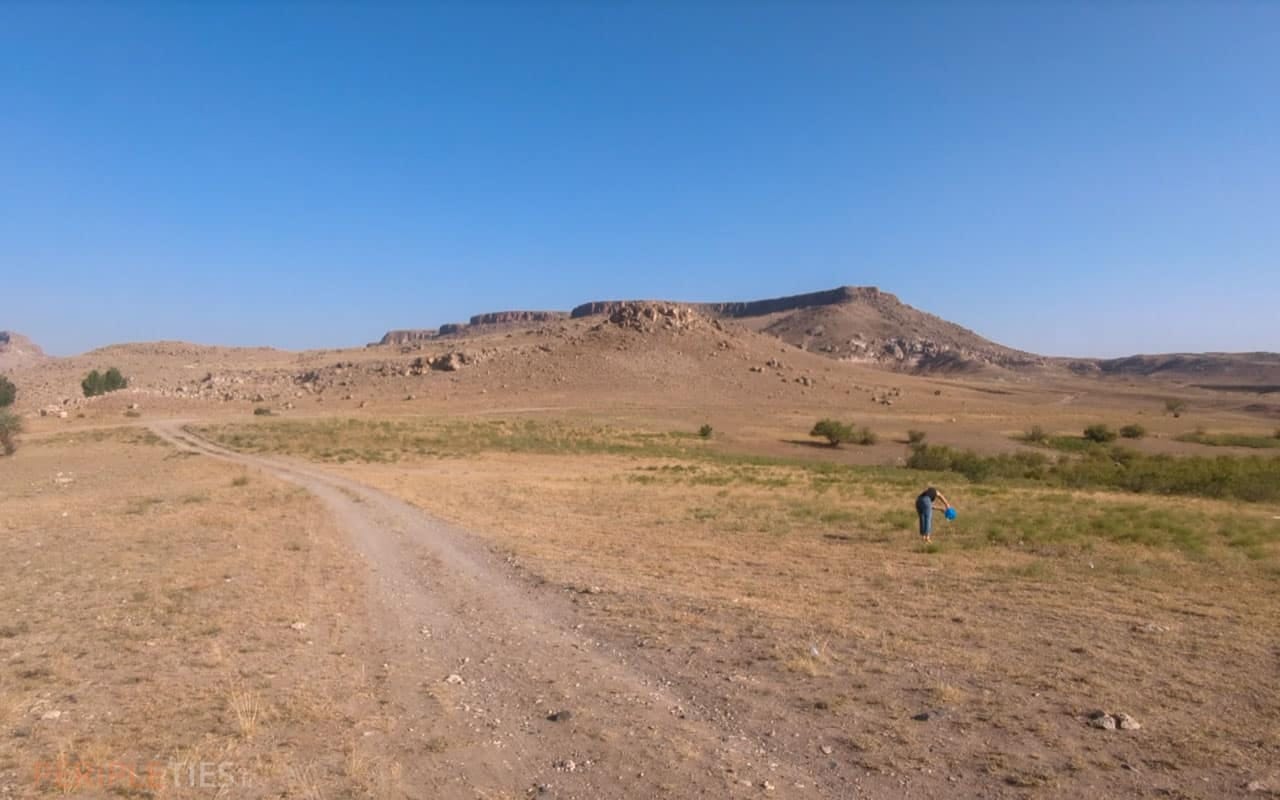
7) Where to empty dry toilets?
There are two ways of emptying the dry toilet tank:
- Bury the contents of the bucket in nature (without plastic and away from waterways) in a careful, respectful and clean way (no illegal dumping, we insist on this point).
- Dispose of the contents of the tank in a rubbish bin (in an airtight, sealed bag to avoid any risk of contamination). But....
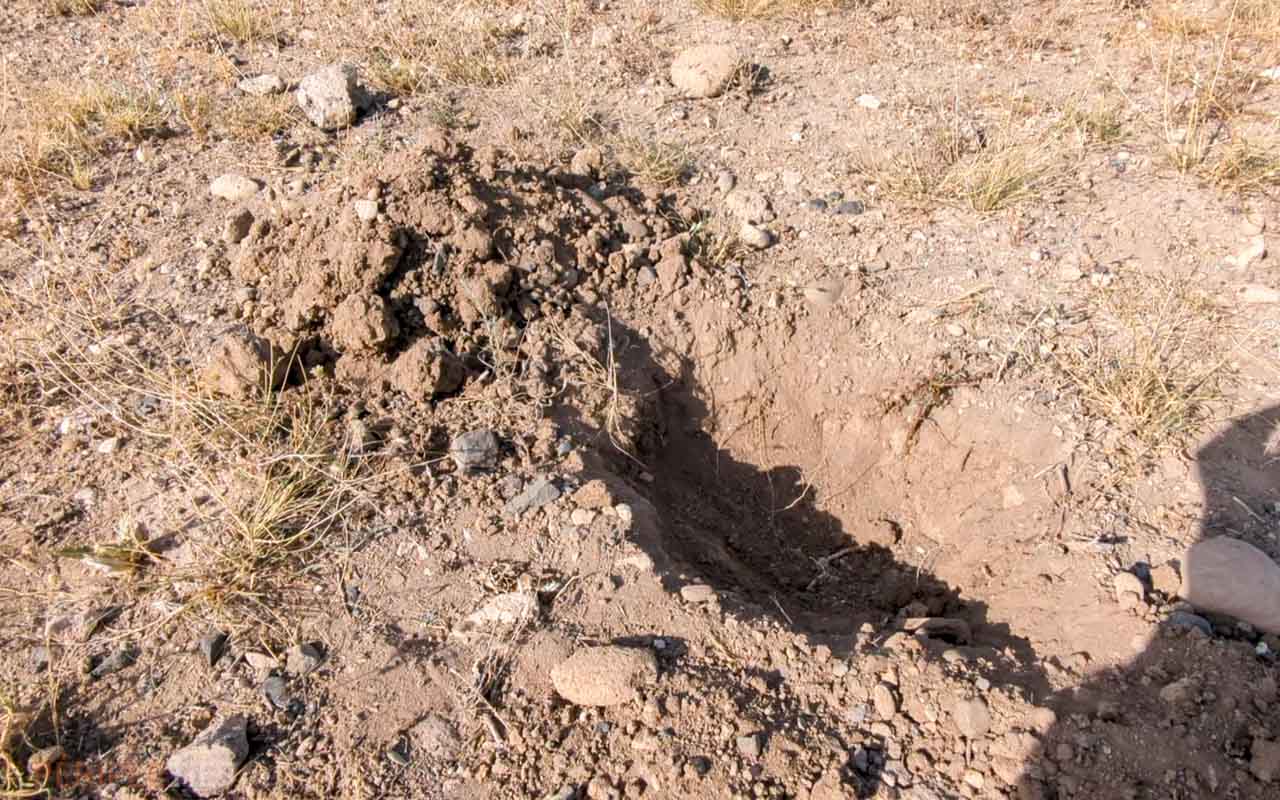
8) Can dry toilet waste be disposed of in rubbish bins?
Disposing of the contents of a dry toilet (excrement) in a rubbish bin raises issues of hygiene and public health.
Departmental health regulations prohibit the deposit of human excrement in rubbish bins. Are you going to tell us that babies' and the elderly's soiled nappies are put there? Yes.
It's no small paradox in this world. But the generalisation of a phenomenon is always likely to give rise to new problems.
Favouring landfill
So we would tend to say that we should give maximum priority to burying waste and using rubbish bins only as a last resort, with absolutely dry material and in a properly sealed bag.
Clearly, the use of dry toilets in motorhomes may be more environmentally friendly, but it does require a certain amount of seriousness.
And although we're convinced a thousand times over of the benefits and advantages of dry toilets, it's still preferable to have a cassette toilet, even a chemical one, and to use a service area correctly, rather than doing anything with the contents of your dry toilet...
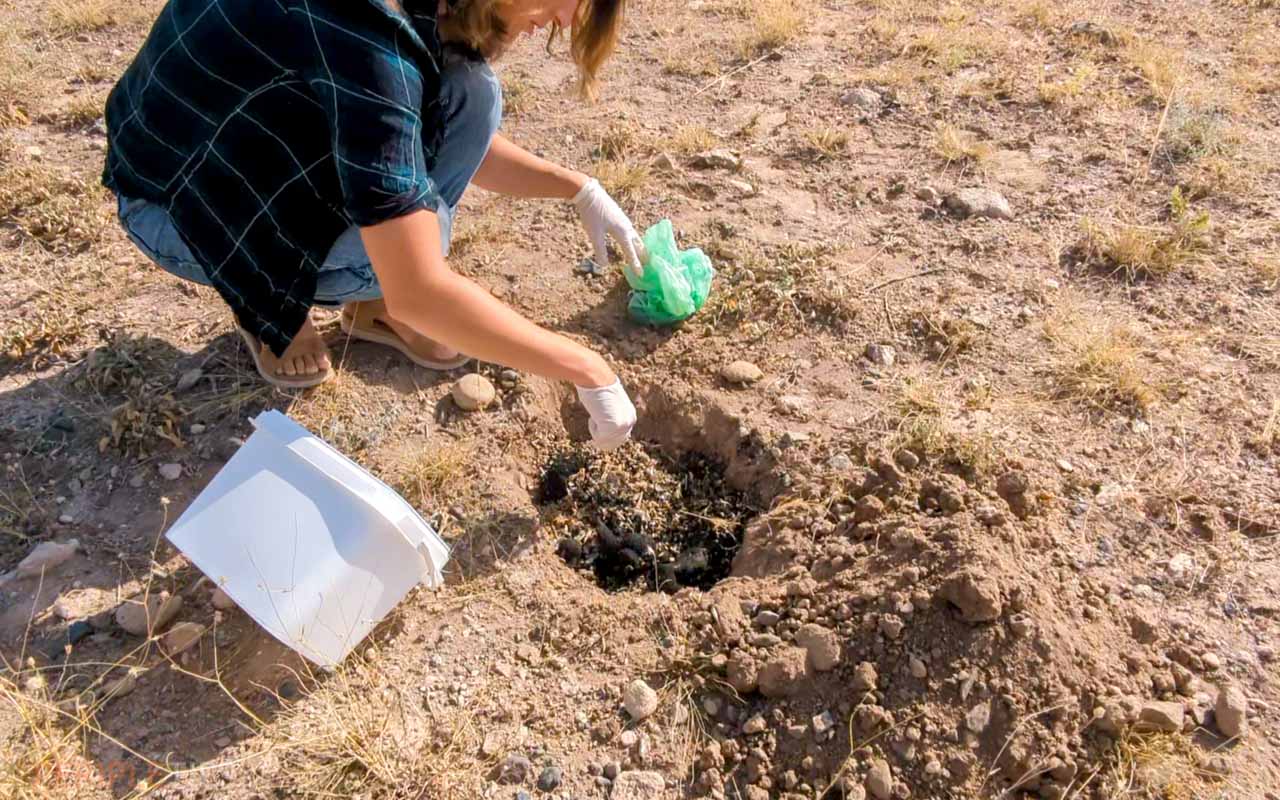
9) Dry toilets, organic products... What are the ecological alternatives to chemical toilets in vans and motorhomes?
It's worth noting that some motorhome owners use ‘liquid’ toilets but do without the chemical products in the cassette, out of conviction, and continue to empty the tank at motorhome service areas.
To limit odours, the main problem with cassettes in motorhomes and vans, they use a good electric ventilation system to the cassette.
Green products Matt Chem, Solbio
In recent years, ‘green’ and ‘bio’ products based on enzymes and micro-organisms (bacteria and other biological agents that break down matter) have been marketed as alternatives to chemical products. This is the case, for example, with products from the MattChem brand, which originally specialised in the world of boats.
Or Solbio, which markets sanitary additives for portable toilets and waste water tanks.
Is Bordeaux mixture organic?
Some people also use Bordeaux mixture... but don't think that high doses of this lime- and copper sulphate-based product are without risk to the environment (it wouldn't occur to you to put some on your skin, so use sparingly...).
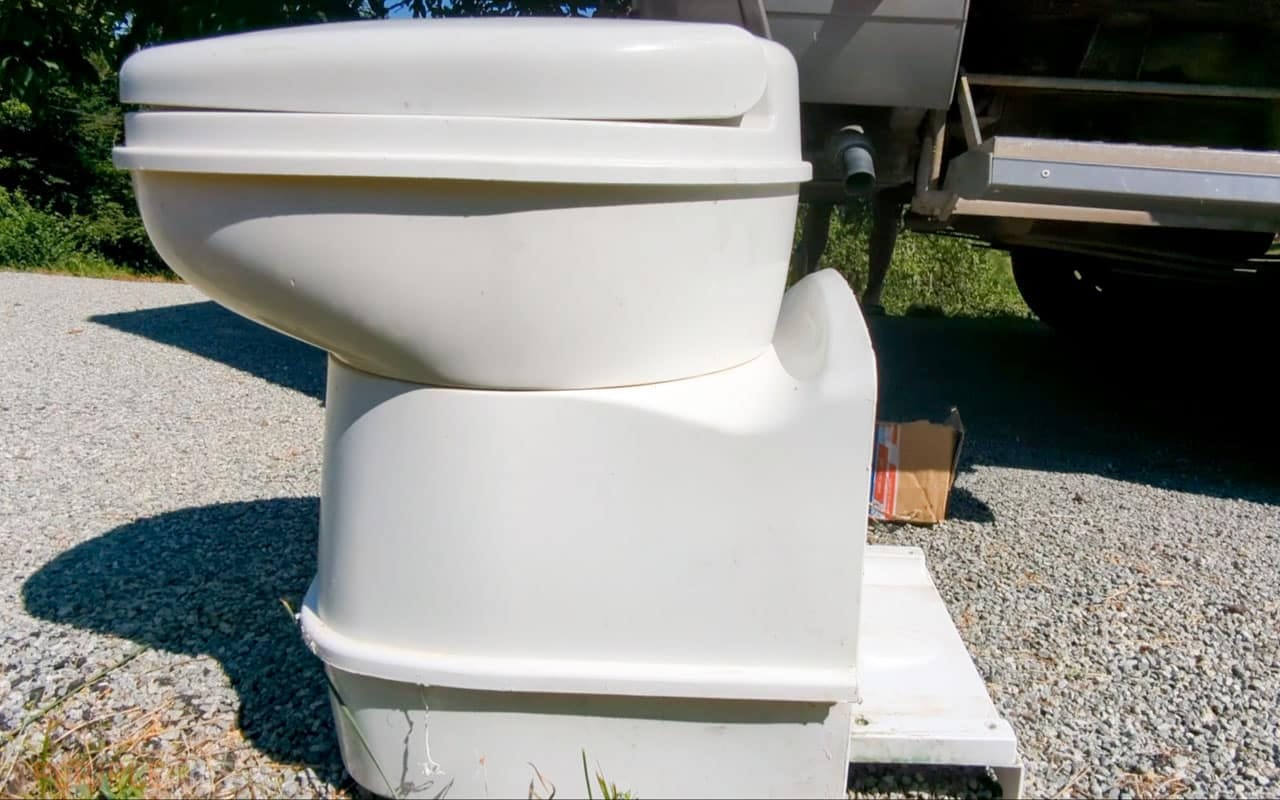
10) Is a ventilation system (SOG type) essential?
For cassette toilets, the SOG ventilation system seems to be proving its worth. Having used Matt Chem products before installing our dry toilets, we have to admit that they are a little less effective in dealing with odours in summer. They should therefore be combined with a good aeration system.
When it comes to dry toilets, a good aeration system will help organic matter dry quickly. Some people therefore highly recommend installing a fan, which can be bought as a kit with all the pipes and casings.
But if you have a skylight in your bathroom like we do, ventilation may not be so essential... A case-by-case test, then!
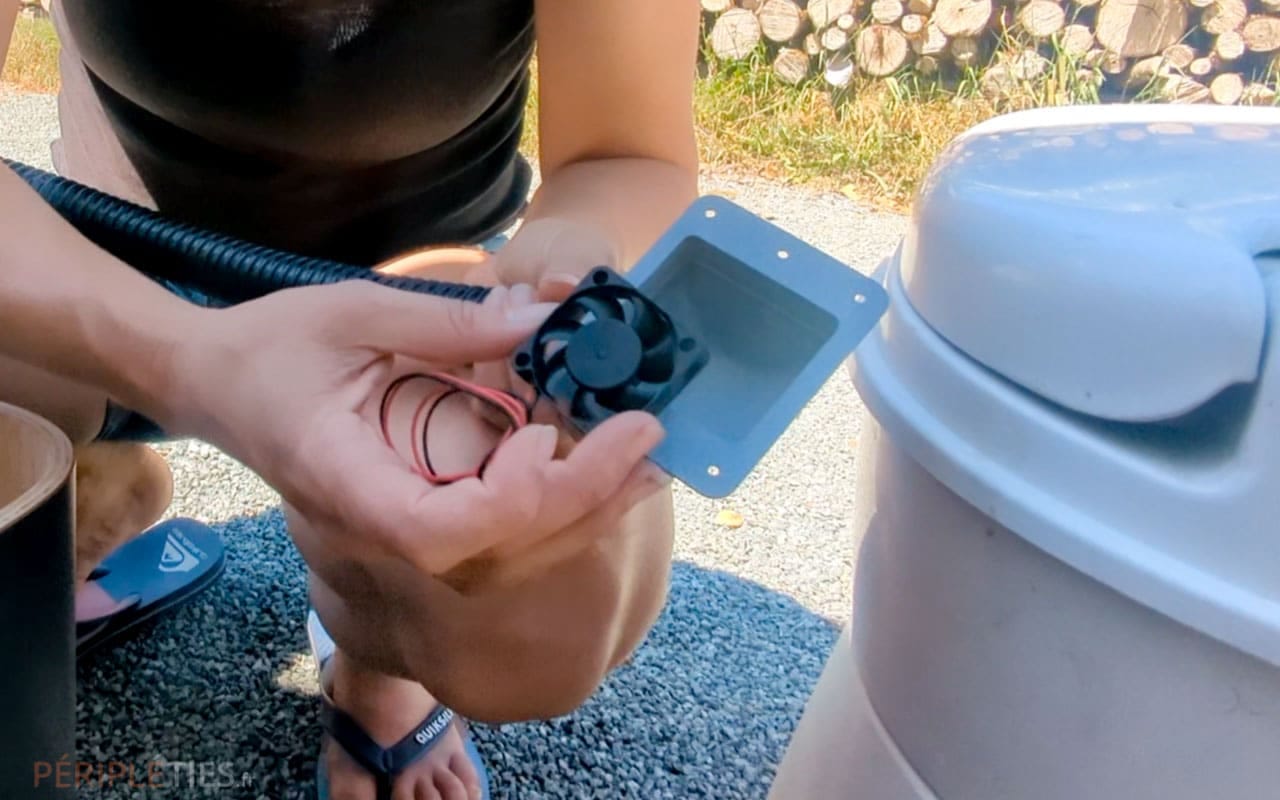
11) Dry toilets in motorhomes and vans: do they stink?
This is the biggest misconception about dry toilets! At home and in the camper van.
People often put on a disgusted face and say ‘But how do you deal with the smell?
Answer: ‘There isn't any’
Once the ‘poo’ has been covered with litter or shavings, it becomes dry.
So the odours are absorbed very quickly, unlike your ‘chemical’ toilets where the whole thing macerates in water and sometimes in the heat, with the pungent smell of the chemical added on... (sorry again, but we know what we're talking about, that's why we've changed! )
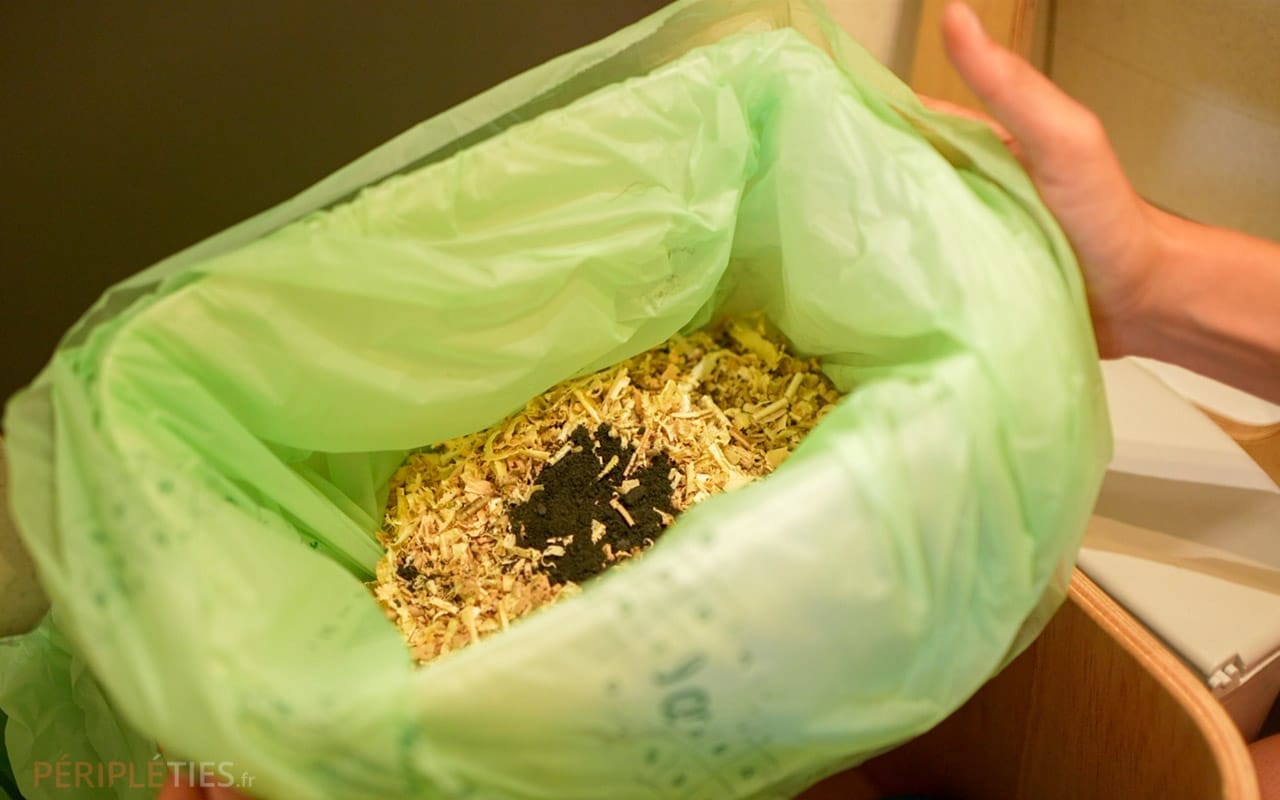
12) Should dry toilets with urine separators be installed?
Bad smells in motorhome dry toilets can come from the mixture of urine and faecal matter. Urine (containing uric acid and mineral salts, including sulphates and phosphates) has a strong smell! ...
That's why separating toilets like ours can be a good option for motorhomes, especially as you can empty them more regularly.
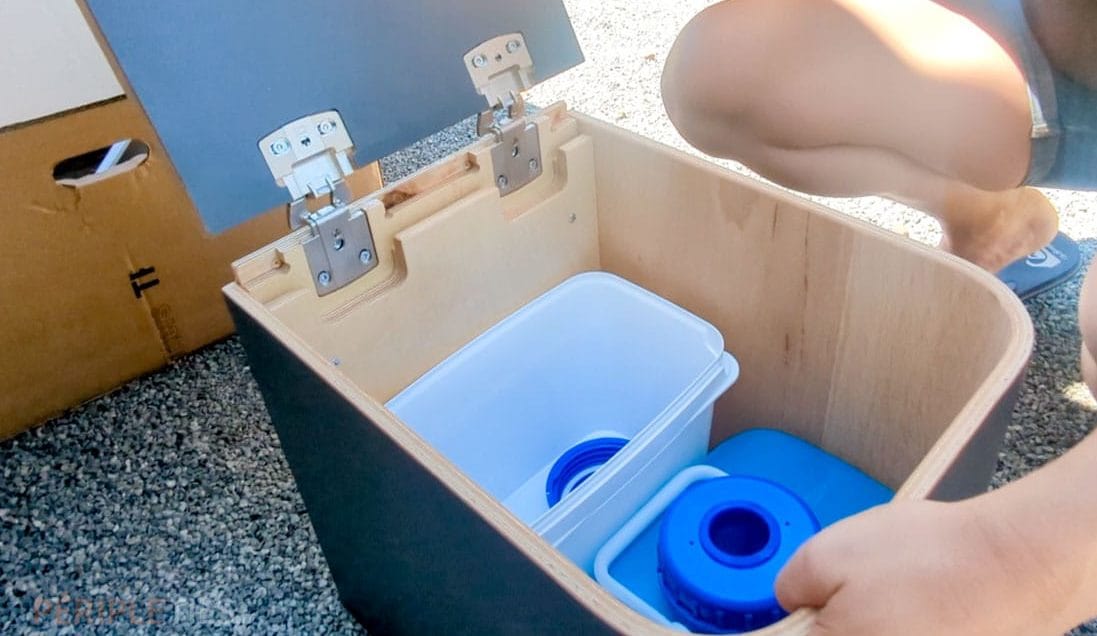
13) How much does it cost to install a dry toilet in my motorhome?
Prices vary considerably. From 70 to over 700 euros, depending on the size, design, origin, materials and, above all, the systems chosen (basic or separate).
And then there are the incinerating dry toilets (Cinderella, Polar, Kabe, Separett, Ecojohn...), which use no water, no additives and no sawdust, but burn and reduce all the faeces to ash!
It's a dream system, but don't get too excited - these toilets cost over €4,000!
14) How do you make a dry toilet?
If the price of a dry toilet makes your head spin and you're a DIY enthusiast, you can obviously make your own dry toilet for your camper van or van, just as you would in your own home. It's actually quite easy to do. All you need is a large wooden board, a drill, a jigsaw, a bit of patience and a good YouTube tutorial! The hardest part is making a perfectly watertight box the hardest part is making a perfectly watertight box.
Ready-to-install kits
The other option is to buy a ready-to-install kit. Generally speaking, all you need to do is build a wooden box with a hinged window, under which you place a bucket (made of plastic or, even better, stainless steel, which doesn't retain the smell). You'll need a supply of sawdust or litter and, if necessary, biodegradable bags (remember, never throw plastic bags into the environment), and that's all there is to it!
You can also find ready-to-install kits on the Trelino website if you want to install a separation system, or on Combeing or Lécopot.
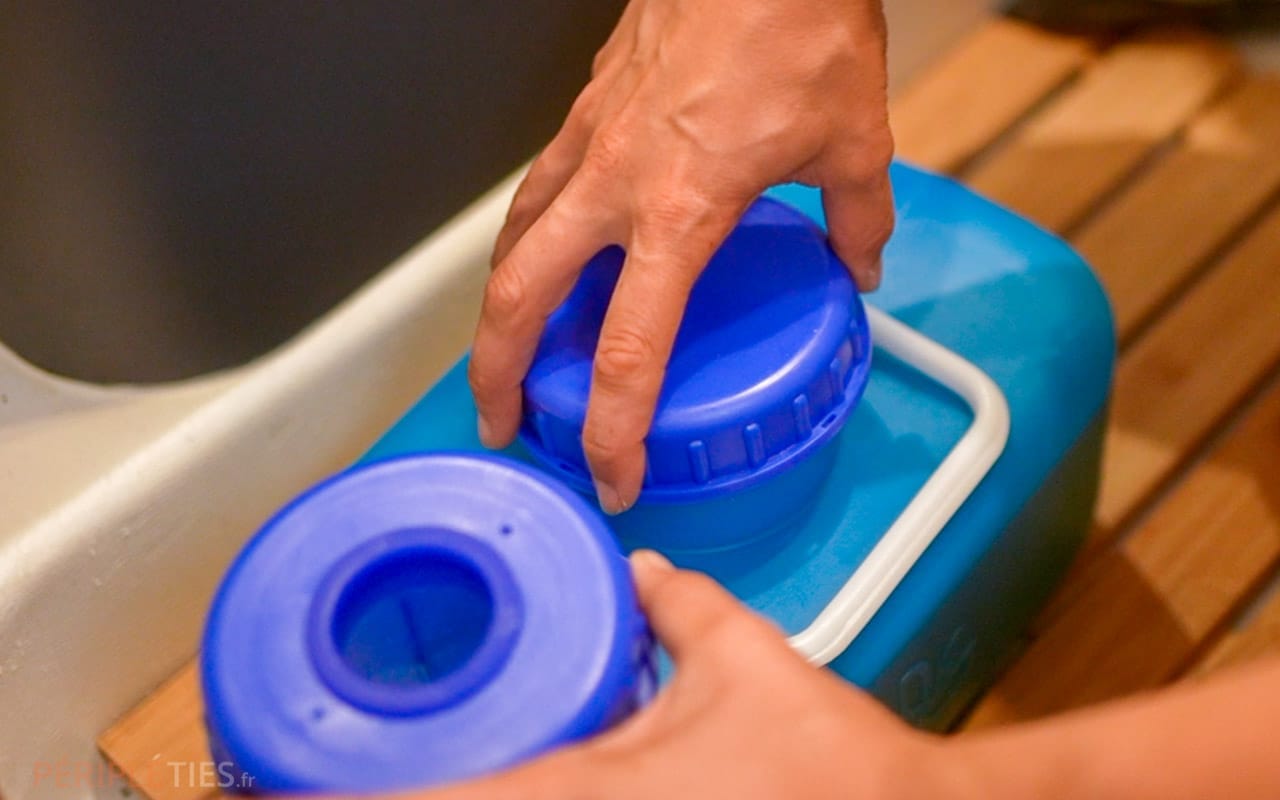
15) Do dry toilets mean greater freedom and autonomy?
When you're in a van or camper van, there's no longer any need to chase after a service area or dip into the (limited) water supply.
But that's not magic either!
In France, and in Europe generally, service areas with drainage points for motorhome ‘chemical toilets’ are sufficiently widespread that the argument of autonomy and freedom is not one of them (although in my experience, the black water drainage infrastructures in certain regions of Italy or Spain are clearly not adapted...! ).
When you start travelling outside Europe, on the other hand, the infrastructures are less developed, or even non-existent, so dry toilets are, in our view, essential.
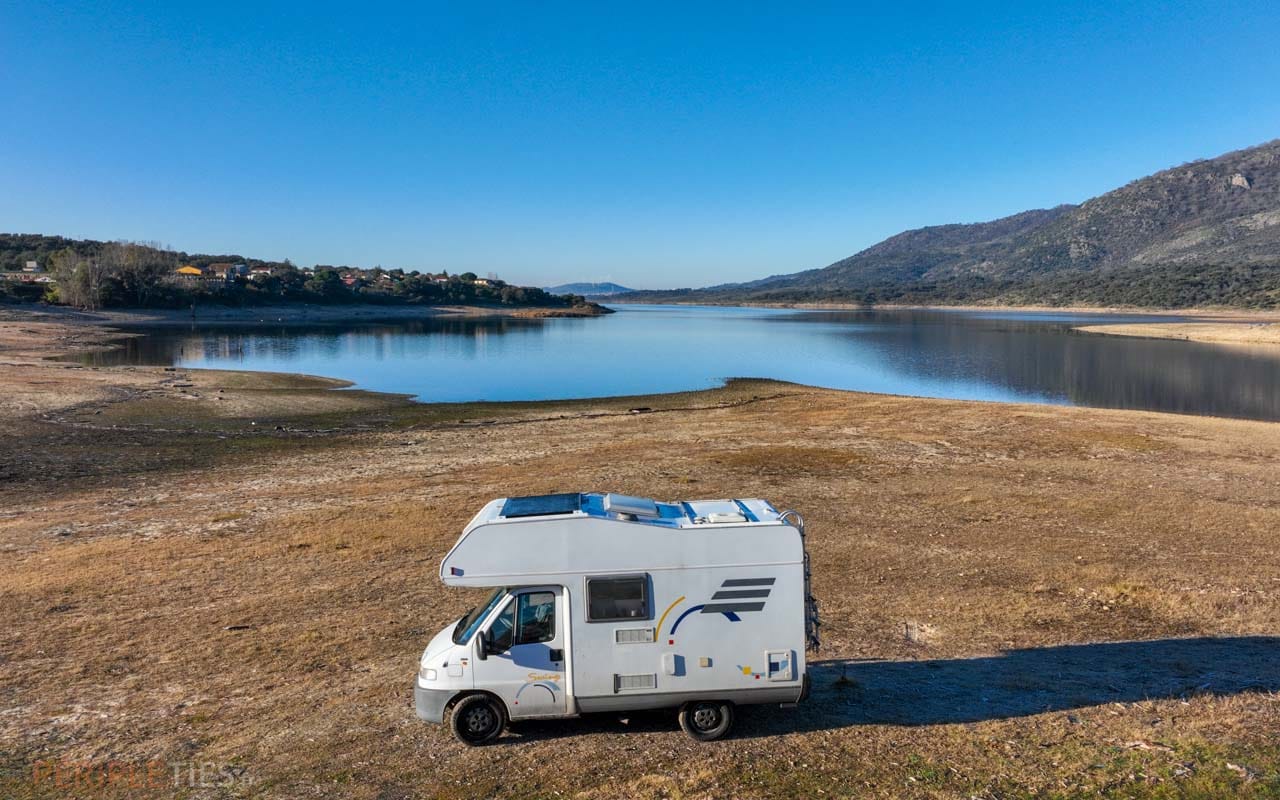
16) How many days can a dry toilet last?
Autonomy with a dry toilet always depends on the size of your container and the number of people using the dry toilet.
It's around a week or more, but it's difficult to give an idea without talking about a specific model, which is what we do in the article presenting our dry toilets.
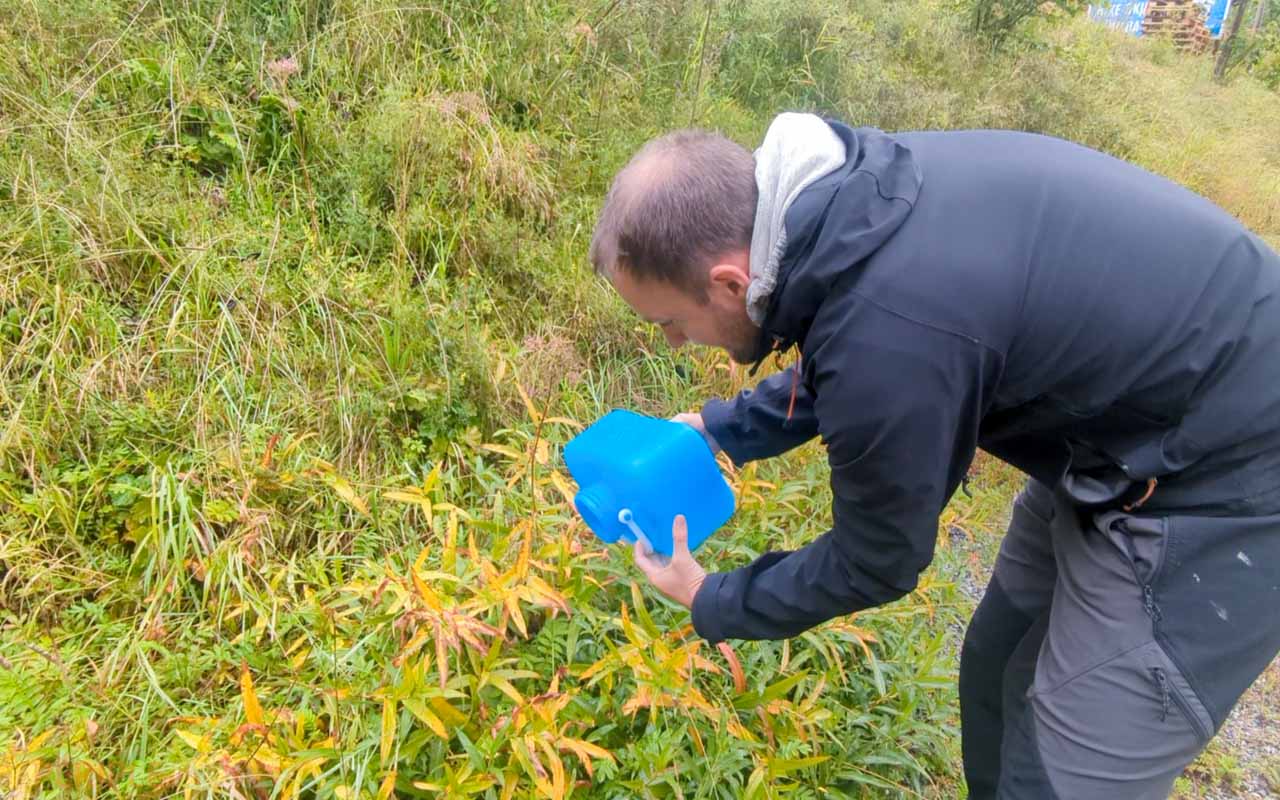
17) Can I convert my motorhome's chemical toilet into a dry toilet?
We ourselves have removed our old chemical toilets and replaced them with separate dry toilets. It's no mean feat... but it can be done!
Portable dry toilet
We chose to attach our dry toilet to avoid mess, but the models are generally designed to be removable. So it's perfectly possible to have a portable toilet system. In fact, this system is widely used in converted vans.
So you can use it outside... even if it's a strange idea if you want to relieve yourself in peace!
18) Can you put the chemical toilets back in your motorhome?
However, going backwards can be complicated, depending on the initial installation. We therefore recommend that you carefully weigh up the pros and cons of dry toilets and bear in mind that if you plan to sell your vehicle, some people may be categorically opposed to the idea of dry toilets in motorhomes... Clichés die hard!
We personally believe that dry toilets will become widespread within the next ten years (some manufacturers are already fitting their new models with compost toilets).
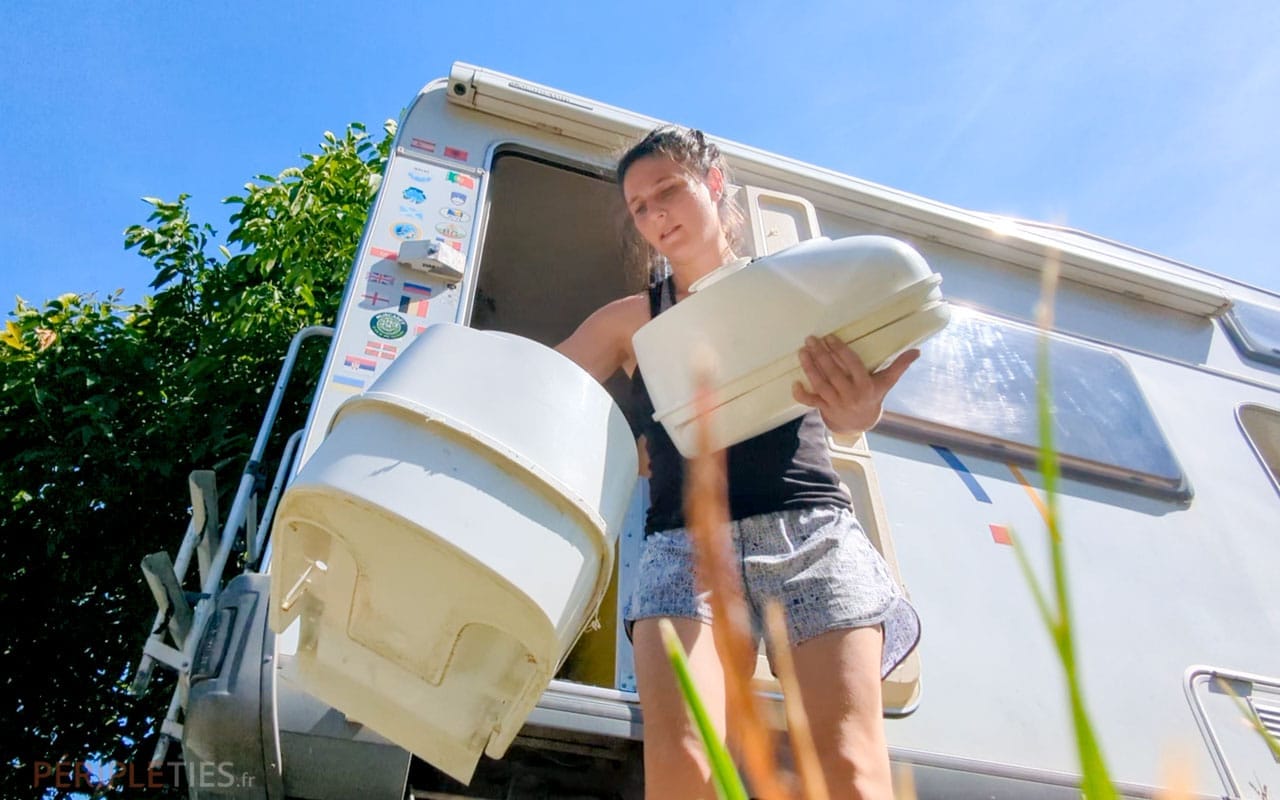
We hope this article has helped you see things more clearly!
Pauline & Simon
